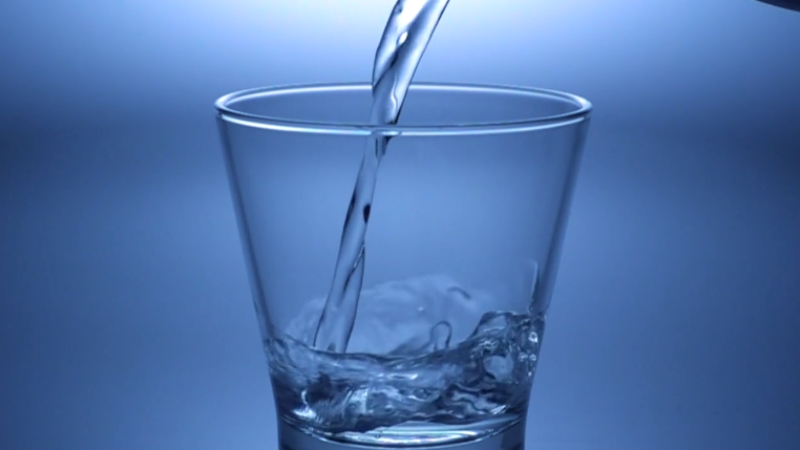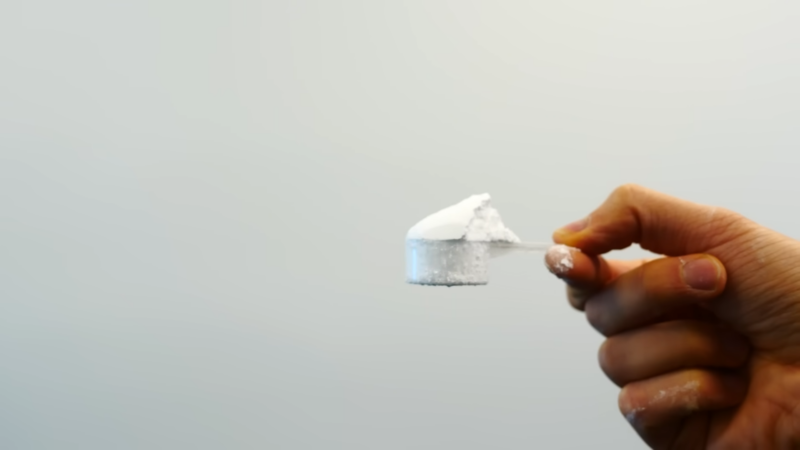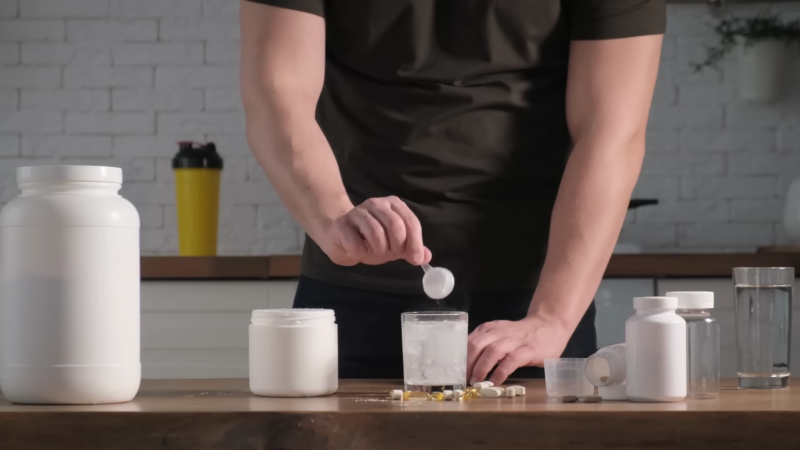Creatine is a naturally occurring compound derived from amino acids, primarily found in muscle cells, where it supports energy production for short, high-intensity activities. It’s widely used as a supplement, often in powder form, to enhance athletic performance and muscle growth.
Typical dosages range from 3 to 5 grams daily, often mixed with water, and users are advised to stay hydrated to prevent potential side effects like dehydration or cramping.
The core question is whether creatine increases urination frequency or volume. Scientific research suggests that creatine itself does not directly cause increased urination in the long term.
Instead, any perceived increase is likely due to two factors: increased water intake recommended with supplementation and a temporary effect during the initial days of use.
Key Takeaways
Water Intake and Urination

Creatine supplementation often involves mixing the powder with 200–300 ml of water per serving, and users are encouraged to drink additional water to support hydration, especially given creatine’s association with water retention in muscles.
This increased fluid intake can naturally lead to more frequent urination, as the body processes and excretes excess water.
For example, if someone typically drinks 2 liters of water daily and adds another liter due to creatine, their urine output would increase accordingly, aligning with normal physiological responses.
Initial Phase and Osmotic Effect
During the first few days of creatine supplementation, the body may not yet have saturated its muscle stores, leading to increased urinary excretion of creatine.
This excess creatine acts as an osmolyte, drawing water into the urine and potentially increasing urine volume temporarily.
Research indicates this effect diminishes within a week as muscle stores become saturated, and urinary creatine levels return to baseline.
Long-Term Effects and Water Retention
View this post on Instagram
A post shared by SAM JOHNSTON // FITNESS & NUTRITION COACH (@thesamueljohnston)
Over time, creatine is known to cause water retention, primarily by increasing intracellular fluid in muscle cells.
This retention means less water is available for excretion, which might suggest reduced urine production.
Studies, such as one from the Journal of Strength and Conditioning Research, found no significant change in urine specific gravity or color with creatine use, indicating it doesn’t alter overall hydration status or urine output when water intake is controlled.
User Experiences and Controversy
Despite scientific findings, some users report increased urination when starting creatine, often attributing it to the supplement itself.
Forums and fitness websites, like Bodybuilding.com, suggest this is likely due to increased water intake rather than creatine’s direct effect.
However, there’s controversy around initial experiences, with some users feeling they urinate more frequently, possibly due to the osmotic effect or hydration habits.
This discrepancy highlights the importance of distinguishing between perceived and actual effects, especially in the early stages.
Key Findings in Detail
To break this down, let’s look at the data and mechanisms:
Effects of Creatine on Urination
Aspect
Effect on Urination
Duration/Notes
Water Retention
May reduce urine volume due to less water for excretion
Long-term, after muscle saturation
Increased Water Intake
Increases urine frequency and volume
Ongoing, based on hydration habits
Initial Creatine Excretion
Temporary increase in urine volume
First few days, due to osmotic effect
Long-Term Urine Output
No significant change, per studies
When water intake is controlled
The table shows that while creatine itself doesn’t inherently increase urination, the combination of increased water intake and initial excretion can lead to more frequent peeing, especially early on.
This aligns with user reports and explains the perceived effect without contradicting scientific evidence.
Physiological Mechanisms

Creatine is processed by the kidneys and excreted in urine when in excess, but this doesn’t typically alter urine volume significantly beyond the initial phase.
The kidneys regulate fluid balance, and any increase in urine output is more tied to water intake than creatine’s direct action, according to studies.
The osmotic effect during early supplementation is a minor, transient factor, as the body quickly adapts by storing more creatine in muscles, reducing urinary excretion.
Practical Implications for Users
For those taking creatine, it’s crucial to monitor hydration.
Drinking adequate water (e.g., 2–3 liters daily, depending on activity level) is essential to prevent dehydration, especially given creatine’s water retention effects.
If you notice more frequent urination, it’s likely due to the extra water you’re consuming, not the creatine itself.
This is particularly relevant for athletes or gym-goers who might already be mindful of hydration.
Unexpected Detail
A growing number of studies suggest creatine may augment the benefits of resistance training and provide healthy older adults a small but significant increase in muscle mass and strength.
New for Washington Post Well+Being: https://t.co/2HFBwKrL85
— Teddy Amenabar (@TeddyAmen) February 26, 2025
While creatine is celebrated for its muscle-building prowess—boosting strength gains by 8–14% in resistance training, per a 2017 meta-analysis in the Journal of Sports Science & Medicine —its initial impact on urine volume is a lesser-known quirk that often flies under the radar.
During the first 3–7 days of supplementation, particularly with a loading phase (20–25 grams daily), the body excretes excess creatine not yet stored in muscles, leading to a temporary spike in urinary output.
A 1996 study in the Journal of Applied Physiology measured this effect, finding that urinary creatine levels spiked from a baseline of 0.02 grams per liter to 0.5–1 gram per liter in the first 48 hours, increasing daily urine volume by roughly 100–200 ml.
This transient increase can catch users off guard, especially if they’re unprepared for the adjustment period, fueling misconceptions that creatine itself drives frequent urination.
After this phase, excretion drops sharply—often to less than 0.1 gram per day—once muscle saturation is achieved, typically within a week at standard doses.
This phenomenon is compounded by creatine’s osmotic properties in the kidneys, where excess creatine draws water into the urine, amplifying the effect briefly.
Fitness forums like Reddit’s r/Fitness report that 20–30% of new users notice this shift, with some humorously dubbing it the “creatine pee phase.” Yet, this detail rarely makes headlines compared to creatine’s performance perks, leaving many surprised by what’s essentially a short-lived adjustment rather than a lasting side effect.
Aspect
Detail
Statistic/Data
Source
Recommended Water Intake
Daily amount for creatine users
2–3 L (3–4 L for athletes)
JISSN, 2018
Urine Output Increase
Extra water’s effect
15–20% (300–400 ml/day)
JSCR, 2003
Initial Urine Volume
During loading phase
+100–200 ml/day
JAP, 1996
Urinary Creatine Spike
First 48 hours of supplementation
0.5–1 g/L (from 0.02 g/L baseline)
JAP, 1996
Long-Term Excretion
After saturation
<0.1 g/day
NCBI, 2013
User Hydration Habits
Increased water intake with creatine
70% add 0.5–1 L/day
Bodybuilding.com survey
The practical takeaway is clear: hydration drives the urination narrative more than creatine does. The initial spike in urine volume—quantified at 100–200 ml daily—is real but fleeting, tied to excess creatine excretion and water intake adjustments.
In the long term, the data aligns with no significant change, as muscle retention stabilizes water dynamics. Athletes, already hydration-savvy, might barely notice this, while casual users could misattribute normal fluid processing to creatine.
The unexpected early effect, though minor, underscores the importance of educating users about the adjustment period to dispel myths and optimize their experience.
Conclusion

In summary, creatine supplementation does not directly make you urinate more.
Any increase in urination frequency is likely due to increased water intake or a short-term effect during the first few days when excess creatine is excreted.
It’s also important to consider what you eat before and after workouts, as proper nutrition can support hydration levels and overall performance.
Scientific studies, such as those from the Journal of Applied Physiology, support that long-term use doesn’t affect urine output significantly, making it clear that hydration habits play the biggest role.
Related Posts:
- Top 400 Hilarious Gym Quotes to Keep You Motivated
- How To Recover From Muscle Inflammation Without Medication
- How Can You Start a Career as a Running Coach?
- Lower Back Pain While Running? Here's What You Need to Know
- How Long Does It Take to Train for a Half Marathon?
- Top Foods for Runners - What to Eat to Recover…







